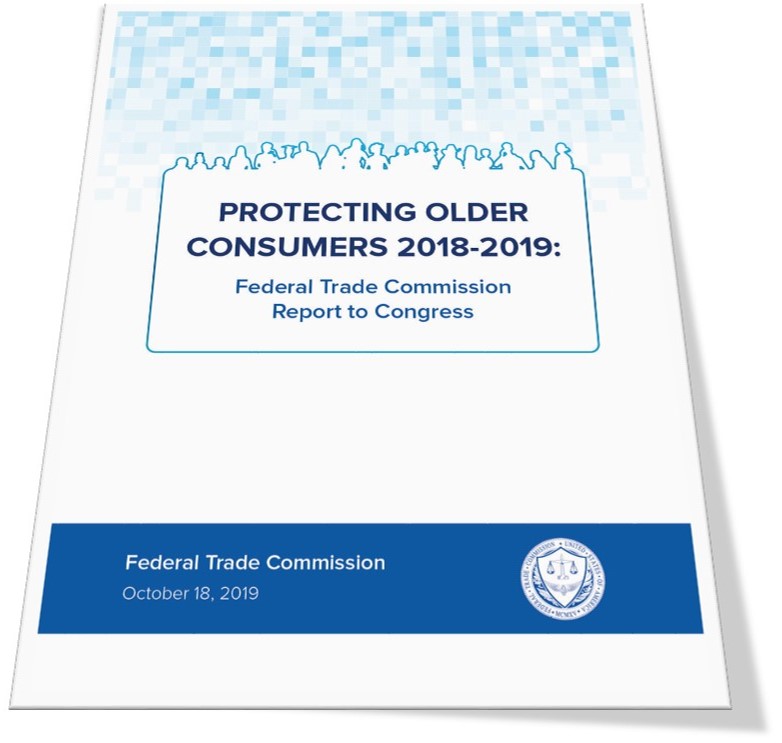There are perceptions some people seem to have about older consumers – and then there’s the data we see in fraud reports from consumers of that age group. Protecting Older Consumers 2018-2019: A Report of the Federal Trade Commission calls some common beliefs into question while offering concrete advice to help you, your employees, and others in your community protect older adults from fraud. Check out the sometimes surprising findings in this year’s report and consider what your business can do to fight back against fraud targeting older consumers.
Older adults were the least likely of any age group to report losing money to scams.
The overwhelming majority of fraud reports filed with the FTC by people 60 and over didn’t indicate any monetary loss. In fact, consumers in that age group spotted fraud and reported it before losing any money at nearly twice the rate of people between 20 and 59. So kudos to older consumers for reporting their scam stories to ftc.gov/complaint. It’s a practice consumers of any age should adopt.
But when older consumers experienced fraud, their reported financial losses were greater than what younger consumers reported.
Compared to 2017 numbers, reported median losses among consumers 60 and over increased, and the increase was particularly large for people 80 and above.
Older adults were more likely to report losing money on certain kinds of scams.
Here’s a stunner: Older adults filed loss reports on tech support scams more frequently than on any other fraud, and were 371% more likely to report losing money on these scams than younger consumers. In addition, older consumers were far more likely to report losses from prize, sweepstakes and lottery scams, and from imposter scams supposedly involving family and friends. But they were notably less likely than younger consumers to report losing money to online shopping frauds and fake check scams.
How do scammers contact older consumers? Most likely by phone.
Older adults reported that a phone call was the initial contact method in what ultimately turned out to be a fraud in totals four times higher than all other contact methods combined.
When they scam older adults, fraudsters’ payment methods of choice may surprise you.
Wire transfers remain a substantial concern, but the number of older consumers who said they paid with gift cards or reload cards has increased dramatically. This is a major shift and a particularly troubling trend because gift and reload cards offer virtually no fraud protections for consumers.
So what does Protecting Older Consumers 2018-2019 suggest for your business?
 Enlist your HR team. Share preventive resources with your staff and encourage employees to pass that information on to their older friends and relatives. Untangling a scam that has ensnared a family member can take a lot of time. The FTC’s Pass It On campaign can empower older adults to raise their defenses against the tell-tale signs of a scam before it causes financial loss. It also offers a framework to help older consumers share what they know in a way that may protect others in their community.
Enlist your HR team. Share preventive resources with your staff and encourage employees to pass that information on to their older friends and relatives. Untangling a scam that has ensnared a family member can take a lot of time. The FTC’s Pass It On campaign can empower older adults to raise their defenses against the tell-tale signs of a scam before it causes financial loss. It also offers a framework to help older consumers share what they know in a way that may protect others in their community.- Offer actionable advice. “Be careful!” “Watch out!” “Don’t be a victim!” Scammers are sophisticated, so these usual chestnuts aren’t helpful. That’s why Pass It On is a no-cliché zone. The site breaks it down scam by scam – family imposters, unwanted calls, home repair hustles, tech support scams, etc. – and offers take-charge tips.
- Alert your employees to gift card scams. When a consumer is buying an unusually large quantity of gift or reload cards, a concerned word from a conscientious employee can help prevent a scam.
